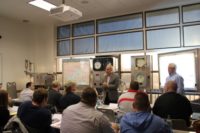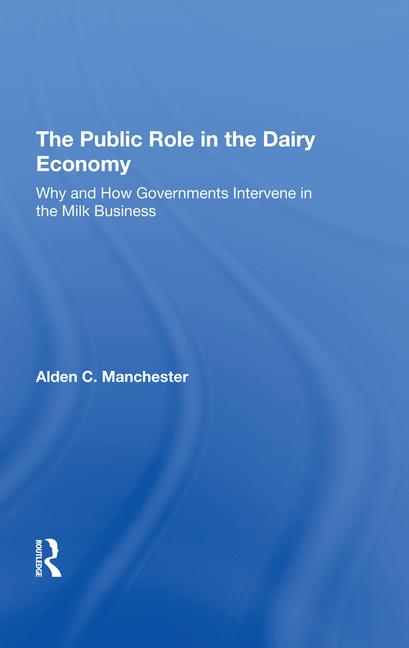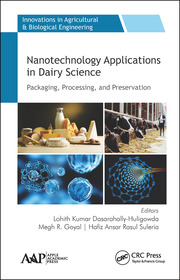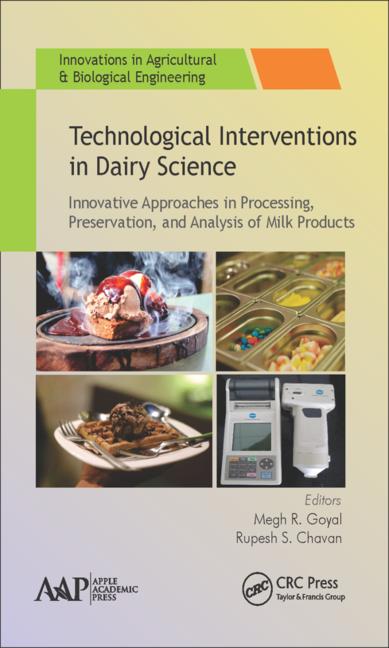Dairy processors enroll in Ohio State University
The university aims to expand and enhance its dairy program. It formed a partnership with Quality Chekd to train and educate dairy professionals in food safety and equipment operation.

Valente Alvarez leads a course at the Wilbur A. Gould Food Industries Center at Ohio State University.

The HTST simulator, developed by Al Votion for training dairy processors and maintenance personnel, is now housed permanently at Ohio State University.

Olivia Geoghegan conducts research in a laboratory in the Parker Food Science Building of the College of Food, Agriculture and Environmental Sciences at Ohio State University.



Dairy processing isn’t getting any easier. The business changes every day. Owners of dairy plants deal with new regulations, new equipment, new products and new hires. As long-time employees retire (taking with them years of accumulated institutional knowledge about processes and practices), dairy managers are left to train new hires (when they can find suitable candidates). Needless to say, training programs are always in need.
Quality Chekd Dairies Inc., a membership organization of dairy and beverage processing companies based in Lisle, Ill., has run training programs for years for its members. President Peter W. Horvath realized that the association’s training programs were relevant to any dairy processor, not just its members.
In the years since 1985, when the association started investing in training programs, Quality Chekd has built up a lot of equity in the programs, Horvath said. It was time to put that equity to work and take the knowledge to a larger audience. “The natural inclination was to look at academia,” he said.
Horvath knew Valente Alvarez, a professor in the College of Food, Agriculture and Environmental Sciences at The Ohio State University, Columbus, Ohio. Alvarez had worked on a project for Quality Chekd in South America. That relationship eventually led to the two organizations forming their partnership. It has advantages for both parties. Quality Chekd creates an income stream beyond membership dues and Ohio State University can build its reputation as a leading dairy institution for teaching and research. The two organizations share costs and revenues.
Ohio State gives Quality Chekd “an anchor” for its training, Horvath said, adding that his organization will still offer programs on the West Coast and at other locations around the country.
The university has a lot to offer, including a strong food science program, two pilot plants (for dairy products and food products), laboratories, a working dairy farm and a dairy economics program. OSU draws on all of these resources to teach eight technical workshops in Columbus. Besides the classrooms in the Parker Food Science Building, workshops and meetings can be held in lecture halls and ballrooms throughout the campus. The university also operates The Blackwell, a full-service business-class hotel and conference center on campus.
OSU faculty and adjunct instructors (including experts from Masterleo Inc. and Silliker) teach the eight-course “Dairy Training and Certification Program” using materials developed by Quality Chekd. The program consists of “Dairy 101” (covering the handling and processing of milk, from the farm to receiving and from manufacturing to the consumer); a dairy laboratory methods workshop; hands-on dairy equipment operation; dairy and juice HACCP; two high-temperature/short-time (HTST) pasteurization workshops; an introduction to the Pasteurized Milk Ordinance; and an advanced CIP cleaning and sanitation program.
The campus is now the permanent home for an HTST simulator developed by Al Votion, a former dairy inspector and long-time trainer to the industry. This one-of-a-kind teaching device functions like a real heat exchanger. Quality Chekd’s Director of Training Steve Drabek calls this “an excellent visual tool” that demonstrates exactly what happens at each point as milk flows through the pasteurizing equipment and the effects of changes in temperature and pressure.
Ohio’s food industry
Dairy and food processing are important industries in Ohio. There are more than 1,100 food manufacturing facilities in Ohio, said Alvarez, who is also the director of the Wilbur A. Gould Food Industries Center in the College of Food, Agriculture and Environmental Sciences.
Dairy alone is a $4 billion industry. The state is headquarters to several of Dairy Foods’Dairy 100 companies, including cheesemaker Brewster Dairy, said to be the country’s largest processor of Swiss cheese. Dannon has its largest yogurt-making facility in Minster. Daisy Brand of Dallas is building a new Grade A plant in Wayne County to make cottage cheese and sour cream. And the grocery chain Meijer is building a fluid milk plant in Tipp City.
Ohio State University students and professionals get hands-on training in the campus dairy plant (named for Brewster Dairy). The facility, with dairy tile on the floor and walls, meets the PMO (but it is not FDA-approved). It includes processing equipment and vats for cheesemaking. Above the plant is a laboratory where graduate students carry out various research projects in development, microbiology and biotechnology. Dairies can contract with the university to conduct proprietary research.
Public-private partnerships
Bruce McPheron, dean of the College of Food, Agricultural and Environmental Sciences (CFAES), embraces the partnership with private industry. Historically, the mission of the university and its cooperative extensions has been to take “the power of science and discovery to the people who need it most,” he said. Today, economic realities require the university to reach out, with limited state and federal funding for education. “Our future is tied to the private sector,” McPheron said.
The Food Industry Center within the college is mission-based, McPheron said. “Valente Alvarez is building those bridges” from academia to the dairy industry, he added.
OSU Extension Director Keith Smith said state statute requires the university to take research to the public. This is unique to the United States. He noted that government agriculture ministries in other parts of the world are about regulation, but here, “we’re about teaching.”
CFAES has about 300 food science undergraduates and about 80 graduate students. Instruction takes place in classrooms, labs, the dairy plant, the food production pilot plant and on the dairy farm.
McPheron said he respects what other land grant universities are doing to serve the dairy industry, citing Penn State (where he used to teach), Cornell, Virginia Tech and Wisconsin. He said his goal at Ohio State is to unite dairy farming practices, economics, food science and marketing. McPheron envisions an entrepreneurial competition for engineers and product specialists. Upon graduation, he said, students would “leave with a degree and a business.”
He also wants to expand and add to the pilot plant. “The value of a pilot plant cannot be under-described,” he said.
Aside from its partnership with Quality Chekd, the Food Industry Center consults with dairy and food processors, carries out contract research and works on product development. The FIC supports teaching and research in the departments and all of the colleges of the university. The center’s goals, Alvarez said, are to build relationships with large and small companies and to provide them with technical assistance.
McPheron called dairy a “complicated industry” but one that can lead to “extraordinary” opportunity. “I’m not a believer in do more with less. I believe in do smarter with less. Where can we have the most impact?” he asked. “I love this place. There is space to think big.”
Looking for a reprint of this article?
From high-res PDFs to custom plaques, order your copy today!











